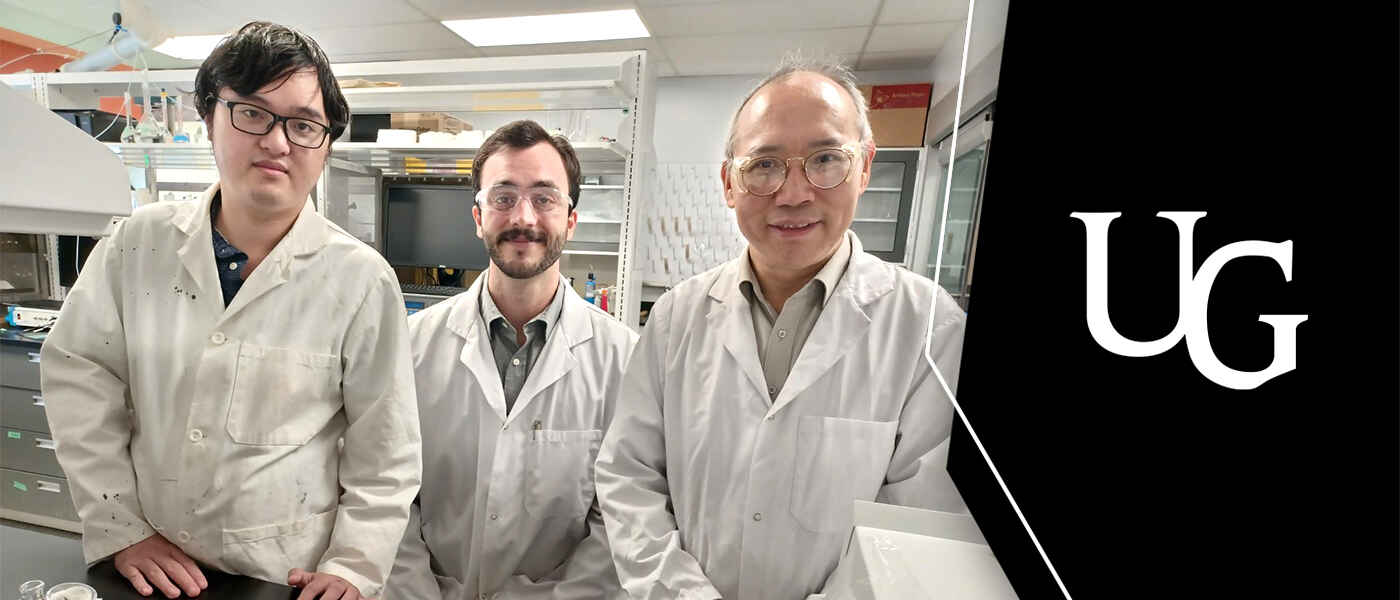A University of Guelph chemist has found a novel way to turn methane into methanol, a discovery that may help stem global warming and create useful industrial products at the same time.
Now Dr. Aicheng Chen, a professor in the College of Engineering and Physical Sciences, hopes to work with industry partners to bring his nano-based chemical catalyst to market. The University’s Research Innovation Office has applied for a patent.
Chen and his research team described their work in a paper published this summer in the Journal of Materials Chemistry A.
They hope their find will help to solve two problems at once – one environmental, the other industrial.
Next to carbon dioxide, methane is the most prominent greenhouse gas contributing to global warming. Molecule for molecule, methane causes at least 20 times more atmospheric warming than CO2.
“Although the overall amount of methane is not as much as carbon dioxide, it accounts for a large share of the greenhouse gases,” said Chen, who holds the Canada Research Chair in Electrochemistry and Nanoscience. “That’s why we want to find a way to reduce methane.”
Methane comes mainly from fossil fuels, waste and agriculture. Various groups including farmers and government agencies hope to harness ways to mitigate its release.
Converting methane into useful industrial products

Chen’s group is among many researchers working on ways to change methane into forms that can be used in processes and products in chemical, fuel and mining industries.
The U of G team has shown they can turn methane into useful methanol using a novel electrocatalyst containing cobalt, nickel and iron.
A catalyst speeds up a chemical reaction. The researchers also use electricity in the process, said Chen, director of the Electrochemistry Technology Centre (ETC) in the Department of Chemistry. He said the team’s catalyst may help reduce the amount of electricity needed for the methane-methanol conversion.
Methanol is a useful substance for producing chemicals and fuel cells, he said. He has held discussions with a Canadian company about potential scale-up of the catalyst technology.
Chen said it’s difficult to pinpoint how much methane the technology may mitigate, but he added that “it could have a big potential to address methane issues.”
He pointed to a report in fall 2021 that the United States and the European Union had pledged to reduce methane emissions by nearly 30 per cent by 2030.
Established in 2002, the ETC is a one-of-a-kind university-based research centre whose roughly 60 members address energy and environmental issues in collaboration with industry.
This research was supported by a Discovery grant from the Natural Sciences and Engineering Research Council.
Contact:
Dr. Aicheng Chen
aicheng@uoguelph.ca
